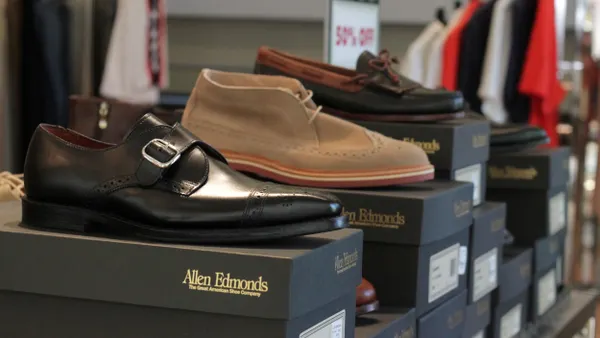Dive Brief:
- Rebag and ThredUp have entered a partnership, according to a press release shared with Fashion Dive. The agreement will allow Rebag customers to sell items on ThredUp for Rebag shopping credit, as well as allow Rebag customers to shop the site’s luxury accessories inventory through ThredUp.
- As part of the partnership, Rebag will also launch a “Clean Out” program through Thredup’s resale-as-a-service tech, giving customers Rebag credit that can be used online and in-store. Rebag’s watches and fine jewelry categories will be added to the platform soon, per the release.
- The collaboration expands the types of items customers can send in for Rebag credit. While ThreadUp accepts over 55,000 brands across 100 categories, Rebag only collects luxury items.
Dive Insight:
The partnership expands on Rebag’s recent efforts to diversify its selling options.
Rebag launched a consignment option for its luxury resale business in September. That model allows customers to get an upfront resale quote on their items with fixed commission rates, along with its buyout and trade options. Ebay launched a similar consignment program for luxury items in September.
“Industry collaboration is key to building a more sustainable future for fashion, and Rebag and thredUP have a shared vision around reuse’s ability to reduce fashion’s impact,” James Reinhart, ThredUp CEO, said in the release. “Through our partnership, we're enabling more shoppers to participate in resale and ultimately encouraging people to make more sustainable shopping choices.”
Rebag has five retail locations in California, Florida and New York. It was named one of Fast Company’s most innovative companies in 2020 and 2021.
Meanwhile, ThredUp recently dual-listed itself on the Long-Term Stock Exchange, the first consumer-oriented company to do so, according to reporting from Fashion Dive’s sister publication Retail Dive. That exchange is for companies with a long-term vision for sustainable and inclusive business practices, and companies that list on it must publish and maintain long-term policies that support those efforts.
Companies are trying to cash in on the growing resale market, which a ThredUp report estimates could reach a $350 billion valuation in 2027. Resale is similarly appealing to brands that want to lower their carbon footprint. Some brands have brought their resale operations in-house through partnerships, including Carhartt, American Eagle, H&M and Timberland.











